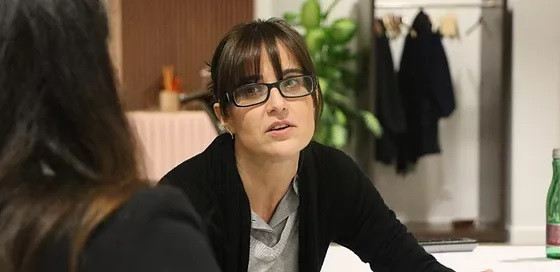
For our weekly “Ideas on Europe” editorial by UACES, the University Association for European Studies, we welcome Simona Guerra, from the University of Surrey in England.
Simona, you want to take a second look at a famous quote by Jean Monnet.
That’s right: « L’Europe se fera dans les crises et elle sera la somme des solutions apporté à ces crises. » / “Europe will be forged in crises, and will be the sum of the solutions adopted for those crises”, a well-known, frequently quoted sentence from his Mémoires of 1976.
You already sound like you don’t agree… Don’t you think it’s still true?
That was my starting question in a recent analysis I did with my colleague Fabio Serricchio, based at the University of Molise in Italy.
The EU has been experiencing multiple crises and increasing politicization. Let’s think about the economic and financial crisis that hit Europe in 2008. It affected decreasing public support for the EU, the EU was described as split along north–south lines. More recently the so-called ‘frugal’ states increased contestation towards the post-pandemic Recovery Fund. And at the same time, we see democratic backsliding across post-communist member states, as Poland and Hungary.
Now the EU has launched the Conference of the Future of Europe (2021), and already debates emerge on its representativeness and possible response from the EU. Will the work and the voices of the participants feed into the future of the EU? Or is it just fueling increasing frustration?
Some academic research underlines the strengthening of the EU through crises, while other publications point out the slow and minimalist reactive response of the EU and its lack of leadership. In our own research, we address the question whether all these crises really help the EU, by looking at the issue of “trust”.
Why “trust”? For what reason did you choose this specific focus?
What we found is that levels of trust towards the EU have been eroding. As noted by previous research, diffuse support can function as a reservoir of goodwill through moments of crisis.
But even though recurrent crises in the history of European integration have often represented a window of opportunity, the series of recent crises seems to have affected citizens’ levels of trust.
The EU and domestic politics are salient to understand citizens, and the three (Western, Eastern and Southern) regions of Europe are affected differently.
- Across Western and Eastern Europe, education is likely to be a critical positive factor with regard to trust.
- National identity holds a consistent negative relationship with trust in the EU across Western Europe.
- The affective dimension is always the most predominantly significant, above all in Southern Europe.
Overall, both affective and utilitarian dimensions are significant, and trust, just like support for the EU, can be explained by both factors.
What we would like to stress is that even though trust is currently increasing, it is slowly losing ground compared to the years before the successive crises, including at times of higher levels of EU support. In other words: when we examine the impact of the crises the EU goes through, we must never lose the citizens out of sight.
That’s a conclusion that fits well with euradio’s editorial line! Thank you very much, Simona, for sharing your research with us. Next week, we’ll have the pleasure to welcome Rebecca Zahn, from Glasgow.





